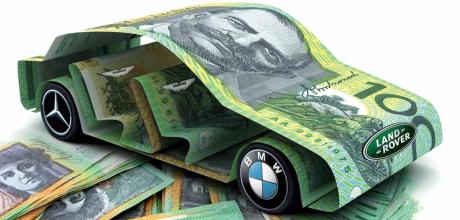Luxury car tax to be abolished?
Yes, really! A new trading deal with the United Kingdom could finally see it dropped, but is it too soon to break out the party poppers?
Twenty years after it was first introduced, signs are starting to appear that the Luxury Car Tax (LCT) is reaching the end of the road.
As part of trade negotiations with the UK post-Brexit for both nations to phase out taxes on imports, it’s thought Australia’s whopping 33 percent tax levied on cars over a certain cost threshold could steadily disappear over the next 15 years. In recent weeks, the UK has put an offer on the table to Australia’s Minister for Trade, Tourism and Investment, Dan Tehan, with an outcome of Free Trade Agreement (FTA) discussions expected by the end of June.
While the Department of Foreign Affairs and Trade (DFAT) remains tight-lipped, insisting trade talks are strictly under wraps, it did not rule out that changes to the LCT would be possible in the near future.
A DFAT spokesman told Wheels: “Domestic taxation measures such as the Luxury Car Tax are generally outside of the scope of FTAs. “The Government has been consistent throughout this process that it doesn’t comment on the details of the negotiations.”
But given cars are one of Australia’s main imports from the UK, alongside medicines and alcohol, to the tune of $36.7 billion in 2019/20, critics of the tax claim now is the time for it to be axed.
Since Holden ceased production in 2017 as the last manufacturer to build cars on Australian soil, there have been growing calls from industry bodies to axe the LCT as it was designed to protect a local industry which no longer exists. Peter Griffin from the Federal Chamber of Automotive Industries (FCAI), said the LCT puts a tax on safety, holds back improvements in environmental outcomes through emissions, and prices consumers out of a majority of the EV market.
“The industry has never supported it, it’s discriminating and inefficient. Every time there is tax reform we hope for it to be set aside. It’s early days, but FCAI understands it may form part of Australia’s discussions with the UK over the Free Trade Agreement and hopes the Government will use it as an opportunity to do away with it.
“It’s not a sound approach to apply a tax to vehicles which have the most advanced safety technology. From a consumer perspective, they’re being prevented from accessing the best tech, and it’s also not helping to encourage the uptake of EVs. The latest and greatest should be available to consumers and FCAI would be very pleased to see it go.” Mercedes-Benz has also struck out at what it calls an “unfair tax” hitting its customers.
“If the LCT were to be scrapped it would enable consumers to access the more advanced safety technology which comes as standard on models such as the EQC, which previously might have been just a bit out of their price range,” a spokesman said. “Ultimately it is an unfair tax on consumers and doesn’t help with their buying decisions.”
The automaker added if the LCT were to be phased out rather than scrapped immediately, it might see some changes to sales numbers but there were a number of other factors involved, such as other taxes being imposed on electric vehicles.
George Demirov, an osteopath from Melbourne who runs his own business, said the LCT prices him out of buying a Range Rover Velar as it now costs in excess of $80,000 before on-road costs. “Buying new, the tax hit would be too much, but buying used it does make a bit of a difference.
“It doesn’t make any sense to have [LCT] anymore now local car manufacturing has ceased; no-one here is seeing any benefit.”
But despite growing pressure to ditch the tax, Treasurer Josh Frydenberg said last year the LCT wouldn’t be scrapped until the budget could afford it. “When it comes to the Luxury Car Tax, we have no plans to remove that, but I would never say never,’’ he said. “We’ve always got to maintain a strong budgetary position. We’ve got a series of taxes we’d like to remove, but we’re committed to keeping the nation’s balance sheet strong.”
Though this year’s Federal Budget was stronger than expected thanks to the country’s response to the COVID-19 pandemic, an abolishment of the LCT may still be some time off given its large contribution to the economy. At present, the tax nets the Federal Government around $700 million per year.
If it were to be removed or phased out as part of the upcoming Free Trade Agreement, it would mean UK importers such as Jaguar, Land Rover and Mini could become exempt while their German, French and Japanese competitors would continue to be taxed at 33 percent on the amount above the threshold.
Calls to axe LCT come as it was designed to protect a local industry which no longer exists
History of the LCT
- 2001 Introduced by the Howard Government, the LCT was designed to protect the local motoring industry by placing a 25 percent tax on imported cars with a value above $55,134.
- 2008 It was increased in 2008 to 33 percent and the threshold has steadily risen based on the Consumer Price Index (CPI) to $69,152 (from July 1, 2021) for cars which use more than 7.0L/100km and $79,659 for ‘fuel-efficient’ cars
- 2017 Holden ceases production in Australia with the last Commodore rolling off the line at its Elizabeth plant in South Australia
- 2020 The Federal Government introduces a scheme that gives primary producers an LCT refund up to $10,000 on one eligible vehicle per year, for vehicles delivered on or after July 1, 2019


